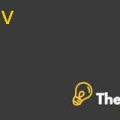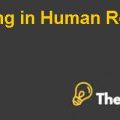
- 1. Describe the various clinical roles, education, and values of 3 – 5 health disciplines, the teamwork implications and how those qualities might affect their participation and function in clinical teams. How you might as a team leader, organize and influence the function of the inter-professional health care team?
Various clinical roles include different types of jobs, who have to stay in contact with patients in different ways. Common clinical roles comprising upon a faculty team coach consist of: critical care physician, medical director, physician, educator, dean allied health school, associate dean medical education, clinical social worker, clinician, researcher and nurses (Margrane, D., Khan, O., Pigeon, Y., Leadley, J. & Grigsby, R.). Clinical roles can be care givers or support service provider to a patient. In terms of education, every single clinical role needs to learn different types of skills and techniques through which they can encompass medical care, but also social care, health promotion and strategies to prevent illness (Lowton, K. & Xyrichis. A.). Moreover, there are some sub-categories in various clinical roles on the basis of health disciplines that differs a same clinical role from the other. For example, in a health care unit where there is a cardiology discipline, mental discipline, gynecology discipline and orthopedic discipline; the level of expertise and education will be different for each clinical role i.e. physicians, a nurse and clinical social worker etc.
In a successful health care unit, all these professionals are acting like an inter-professional team members where they are combining their learning and expertise to achieve a particular goal. Although, teamwork has various benefits but it has also some serious implications, which are important to consider for effective performance of an inter-professional team. Major implications include: leadership issues, failure to set a time for the regular meeting, the difference in status and power, negative perception, frequently changing team members, lack of organizational support, etc. The qualities of clinical roles can greatly affect the function and performance of a team both positively or negatively. If a team is well-organized and well-laid, then the qualities of its members will affect it in a positive manner by increasing its performance, whereas a poorly organized team will result in conflicts and less efficiency. I will organize my inter-professional health care team as a way to success for every team member because if team members have an opportunity to polish their individual expertise by contributing in a team, then they will act more efficiently and devotedly. I will also support best performers via rewards and better performance appraisal system and poor performers via motivation such as training, better job design and job rotation.
2. Discuss the elements and characteristics of a clinical team in which you have been a part—either as a caregiver, support services team member, or patient/family member. How might your experience be different now after considering the readings we have shared? How does your experience help you to consider the adaptive challenge you would like your small group team to grapple with for your final team project? How does that affect whom you now believe you need to interview in order to be a better informed team member?
I was a part of a clinical team as a family member of a patient and my experience was a bit different from the readings. The elements of the team were the identification of things that can go wrong during treatment, actions to ensure prevention from any sort of recurrence and patient’s checkup twice daily. The clinical team didn’t consider the patient and the patient’s family in making decisions as well as the physician just took some information from the patient and shared nothing with us. On the other hand, an effective and advance clinical team should have the following characteristics:
- Up to some extent, both patient and physician should be involved in the treatment decision-making process.
- Both the patient and physician share information with each other.
- Both patient and physician should take steps to participate in the decision-making process by expressing treatment preferences.
- A final decision regarding the treatment that has to be implemented should be made by both patient and physician. (Charles, C., Gafni, A. & Whelan, T.)
On the basis of these points/elements, my experience compelled me to seriously think about the adaptive challenge to grapple in the final project because in the absence of these characteristics it is difficult to achieve success and customer satisfaction. The adaptive challenge is greatly dependent on the will of the patient. The agreement of a patient in the implementation of a particular treatment is necessary because a patient’s self efficacy is the only thing which can increase the effectiveness of a particular treatment. Unlike technical challenges, in adaptive challenges there is no need to ask and wait for experts to respond. This will empower the relationship between team members and patient and will increase customer satisfaction as well as it will improve the performance of a clinical team.................................
This is just a sample partial case solution. Please place the order on the website to order your own originally done case solution.













